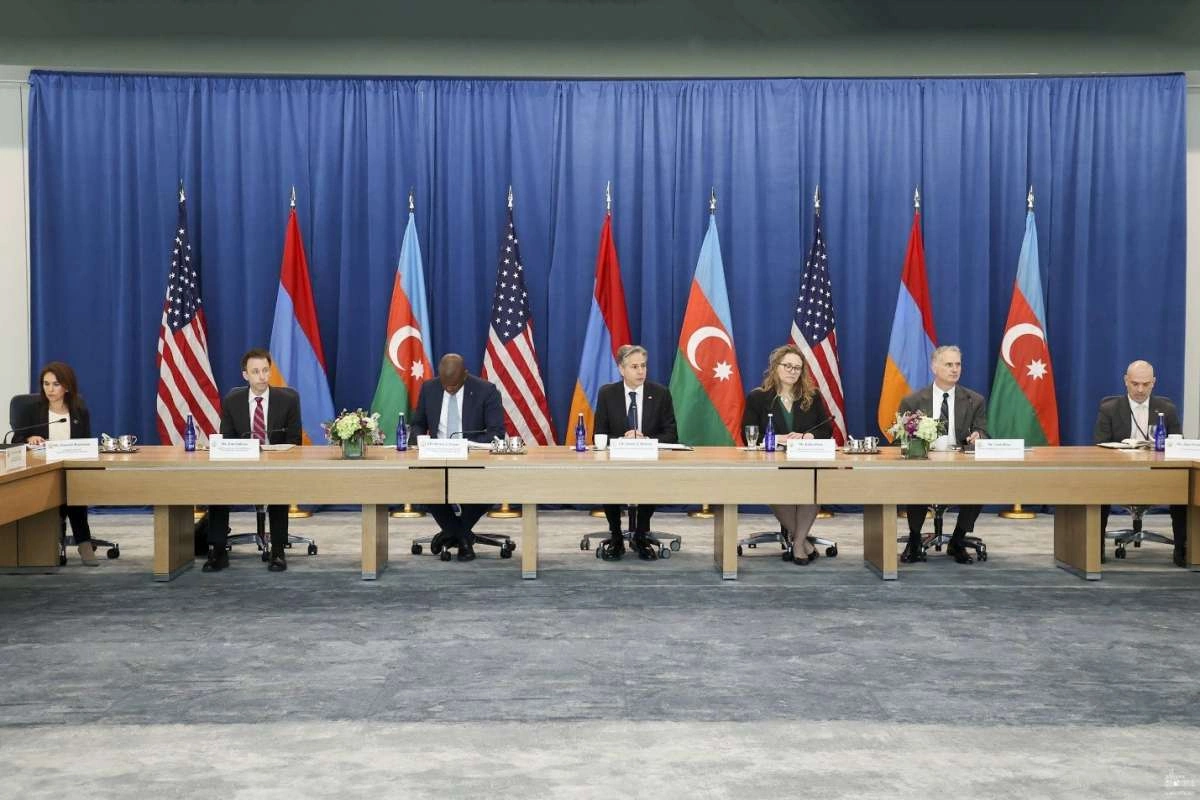
Peace beckons as Blinken brings together Mirzoyan and Bayramov for four days of Azerbaijan-Armenia talks in Washington.
Image: Armenia MFA
Efforts to normalize relations between Baku and Yerevan took a big step forward on Monday, May 1 as U.S. Secretary of State, Antony Blinken, welcomed the foreign ministers of Armenia and Azerbaijan, Ararat Mirzoyan and Jeyhun Bayramov, to Washington. The ministers have had several face-to-face meetings since the 2020 Second Karabakh War. However, this time is different, most notably because the timetable allows four whole days of conversation rather than brief, choreographed encounters on the edge of international conference summits. It is hoped that this will allow much more scope for free, in-depth discussions that are frank and forthright but cover “all the issues” and, hopefully, lead to a better understanding.
Getting the meeting to happen at all is already something of a victory for U.S. diplomacy, given the various pitfalls that have dogged peace moves in the past few weeks, including a military skirmish in which seven died and the burning of the Azerbaijani flag at the European weightlifting championships in Yerevan.
In late April, Blinkin laid the groundwork for the talks by calling the presidents of Azerbaijan and Armenia and pledging support for the peace process, while expressing “deep concern” about Azerbaijan’s recent establishment of a border check post on the Hakari bridge, at the very start of the road that leads to the Armenian populated areas of Azerbaijan. For Armenia, the construction of that border checkpoint is seen as a “gross violation” of the terms of the November 2020 agreement that ended the war and which was meant to allow unimpeded access along the road. However, Russian peacekeepers who were introduced, at least nominally, to ensure fair play have not interfered, whether for lack of will or due to weakness in the context of Moscow’s bogged-down invasion of Ukraine. Meanwhile, Baku counters that it’s Azerbaijan’s sovereign right to set up a border post on its legal frontier while noting that there has been no progress by Armenia to provide a transit corridor for Azerbaijanis wanting to reach the disconnected exclave of Nakhchivan. This detail was also implicit in the November 2020 document by which Armenia was supposed to guarantee safety for such transits.
Looking ahead to the Washington talks, widely respected analyst Richard Giragosian, quoted by TheWorld.org, points out that the Armenian leadership now realizes it’s in a position of weakness, which probably contributes to a new urgency to sign a peace treaty in months rather than years. He also notes that Yerevan has stopped pressing for self-determination for the Karabakh Armenians, now instead pressing for measures for their protection “within the context of Azerbaijan’s territorial integrity.”
So now three men, each dressed in similar dark suits, black shoes, and blue ties, have four days to talk and find some sort of solution to bring peace – or at least the normalization of relations between the two countries. Both have a great deal to gain from a potential new era of stability in the Caucasus.
Share on social media